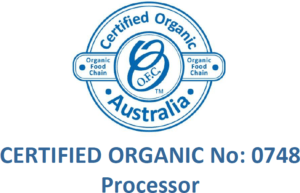The Best Way to Alkalise… Authors
Acid-Alkaline Foods Guide
In 1932 Otto Warburg won the Nobel Prize in Physiology for his discovery that cancer was anaerobic – cancer occurs in the absence of free oxygen…
“If your internal environment is changed from an acidic, oxygen deprived environment to an alkaline environment full of oxygen…viruses, bacteria and fungus cannot live.”
An extremely significant finding, it means that one of the many significant contributing factors that may cause cancer seems to be a lack of oxygen in the body and this also may be the potential start of many lifestyle diseases. We appear to get more acidic as we age, compounded also by an acidic western diet and modern lifestyle/work stress. Alkalising may balance your health, by neutralising acids and mineralising and restoring your alkaline reserves.
A great deal has been written on the topic of Alkalising and pH balance and there are many books to research on the topic. A few highly regarded sources to begin with include the following authors
Darrell Wolfe, ”the Wolfe Clinic”Canada …Acidosiswww.thewolfeclinic.com
Dr Robert O Young ‘pH Miracle’,
Robert R. Barefoot and Carl J. Reich, MD – the Alkaline mineral Calcium and its role in the Maintenance of Good Health,
Sang Whang ‘Reverse Aging’, “in some extreme cases, the build up of acidic elements is so great that it starts to destroy healthy cells…healthy cells must maintain a slightly alkaline pH level…cancer cells are acidic while healthy cells are alkaline.”
Dr Batmanghelidj‘ WaterCure’ &‘Your Body’s Many Cries for Water’92)
Dr Theodore Baroody, ‘Alkalise or Die’…”the countless names attached to illness does not matter. What does matter is that they all come from the same root cause…too much tissue acid waster in the body.”
Dr Masaru Emoto, Japan.. ‘Messages of Water’ www.hado.net Christopher Vasey…The Acid-Alkaline Diet” for Optimum Health 1999. Anthony Robbins, author and personal development coach…”Boost your alkalinity…get healthy, not old…”
What can do to assist our body to balance acidity and maintain a pH balance? A simple saliva test will give you an indication of how acidic you are…whilst not diagnostic like a doctor’s report they will give you a guide.
Balance – Whilst food choices involve digestion, naturally alkaline still mineral waters (non-carbonated), carry a negative charge so they balance acidity and seem to be absorbed faster at a cellular level. The following list is not exclusive, but does include the major lists of choosing alkaline in preference to acid forming foods.
Many people are individuals and their needs vary but aim to balance their long term health by following the 80:20 food rule…try to eat 80% alkalising foods & only 20% of the acidic foods (mostly the animal proteins)
Choose Alkalising Foods to Balance
This lists the major Alkaline:Acid Food Groups, but there are more…
Extremely Alkalising
Lemons and Watermelon both produce an alkaline ash in the body.
Wheatgrass
Naturally Alkaline Still Mineral Waters (non-carbonated)
Some Alkaline Forming Foods
Beetroot
Cantaloupe (Rockmelon)
Celery
Dates
Figs
Green foods (green barley, chlorella, Spirulina)
Kelp
Limes
Mango
Melons
Papaya (Pawpaw)
Parsley
Seaweed
Watercress
Asparagus
Kiwifruit
Passionfruit
Pears
Pineapple
Raisins
Fresh vegetable juices
Moderately Alkaline Forming Foods
Apples
Alfalfa sprouts
Apricots
Avocado
Ripe Bananas
Figs
Nectarines
Peaches
Peas
Pumpkin
Sea salt
Bell peppers (capsicums)
Broccoli
Cabbage
Carob
Cauliflower
Ginger
Lettuce
Raspberries
Strawberries
Squash
Whey Protein Powder
Mildly Alkaline Foods
Almonds
Artichokes
Brussels sprouts
Cherries
Fresh Coconut
Cucumber
Eggplant
Raw honey
Leeks
Mushrooms
Okra
Olives
Onions
Radishes
Egg yolks
Raw goats milk
Olive oil
Sesame seeds
Soy beans, Soy milk and cheese
Sprouts
Stevia-alkalising sweetener
Tofu
Acid Forming Foods
Some Highly Acidic Foods
Artificial sweeteners
Bacon
Beef
Beer
Bread
Brown sugar
Carbonated soft drinks
Cereals
Chocolate
Cigarettes
Coffee
Fish
Wheat flour
Jam
Lamb
Alcohol
Maple syrup
Pasta/ Noodles
Cakes & pastries
Poultry
Sugar
Seafood
Iodised table salt
Black tea
White bread
Wheat foods
Wine
Sweetened yoghurt
Some Moderately Acidic Foods
Green bananas
Barley
Blueberries
Bran
Butter
Cereals
Cheese
Corn
Cranberries
Dried beans
Dried coconut
Egg whites
Homogenised goats milk
Processed honey
Homogenised milk
Lentils
Most nuts
Oats
Pickled Olives
Pastries
Plums
Potatoes
Popcorn
Prunes
Rice
Pumpkin Seeds
Soy Sauce
Squash
Neutral Foods
Fresh Unsalted Butter
Fresh Raw milk
Raw Cream
Oils
Plain Yoghurt


